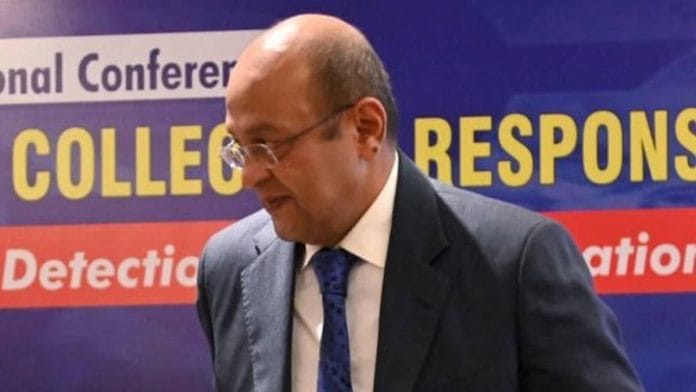New Delhi: Allahabad High Court judge Justice Yashwant Varma, who faces possible impeachment for alleged discovery of half-burnt Indian currency notes within his official premises that he occupied as a judge of the Delhi High Court, has moved the Supreme Court to quash the three-judge inquiry panel’s report that indicted him for “covert or active control” over the cash.
The panel was constituted at the behest of former Chief Justice of India Sanjiv Khanna. The report’s finding became the basis for Khanna’s May letter to the Prime Minister and President recommending the judge’s removal.
Questioning the outcome of the report, Justice Varma has now assailed the former CJI’s recommendation letter.
He has claimed that the panel’s probe bypassed constitutional procedure and legislative safeguards.
The in-house procedure that kicked off pursuant to CJI Khanna’s order on the administrative side lacked statutory backing. And since it is administrative in nature, it cannot become the foundation or reason to recommend the removal of someone who holds a constitutional office, he states in his petition to the SC, according to sources in the know.
To be sure, the in-house procedure is the judiciary’s self-evolved mechanism to provide an additional layer of protection to sitting high court and Supreme Court judges. This process is intended to assist the CJI, whose permission is needed before a law enforcement agency can register an FIR against a sitting HC or SC judge.
Justice Varma’s petition also claims that the inquiry itself was contrary to design and objective of the in-house procedure. It was based on presumptions and unverified information, without any formal complaint, he argues.
He also criticised the Supreme Court for releasing a media statement on 22 March, 2025, publicly disclosing the allegations against him.
This not only subjected him to media trial, but speculation about the allegations harmed his reputation and violated his right to dignity, he says.
He has also alleged violation of natural justice and due process that required the committee to offer him a chance to rebut the allegations and also allow him access to evidence. Key witnesses, he claimed, were examined in his absence.
He added that the panel also overstepped its limited mandate. Moreover, it should have looked into core questions such as who placed the cash and what caused the fire at his outhouse where the alleged discovery took place.
The committee’s report lacks proof and concrete evidence as it has relied on presumptions, he states.
While questioning the recommendation for his removal, Justice Varma says the former CJI took a decision without giving him a personal hearing, and forwarded a recommendation within hours of receiving the inquiry panel’s report.
This was inconsistent with past precedents when judges in similar situations received personal hearings before any action was recommended. Therefore, the former CJI’s move is arbitrary and in violation of established conventions, he has submitted in his petition to the SC, according to sources.
The petition comes just before Parliament’s monsoon session begins Monday, when the government is likely to move a motion for the judge’s removal.
(Edited by Nida Fatima Siddiqui)
Also Read: Clean-up job by Justice Yashwant Varma’s aides: What panel probing judge cash row found






